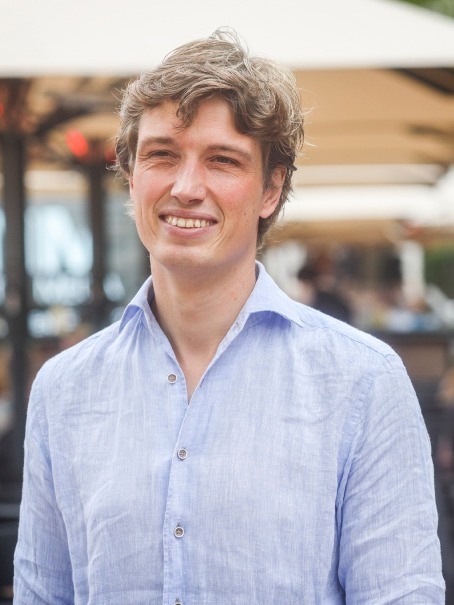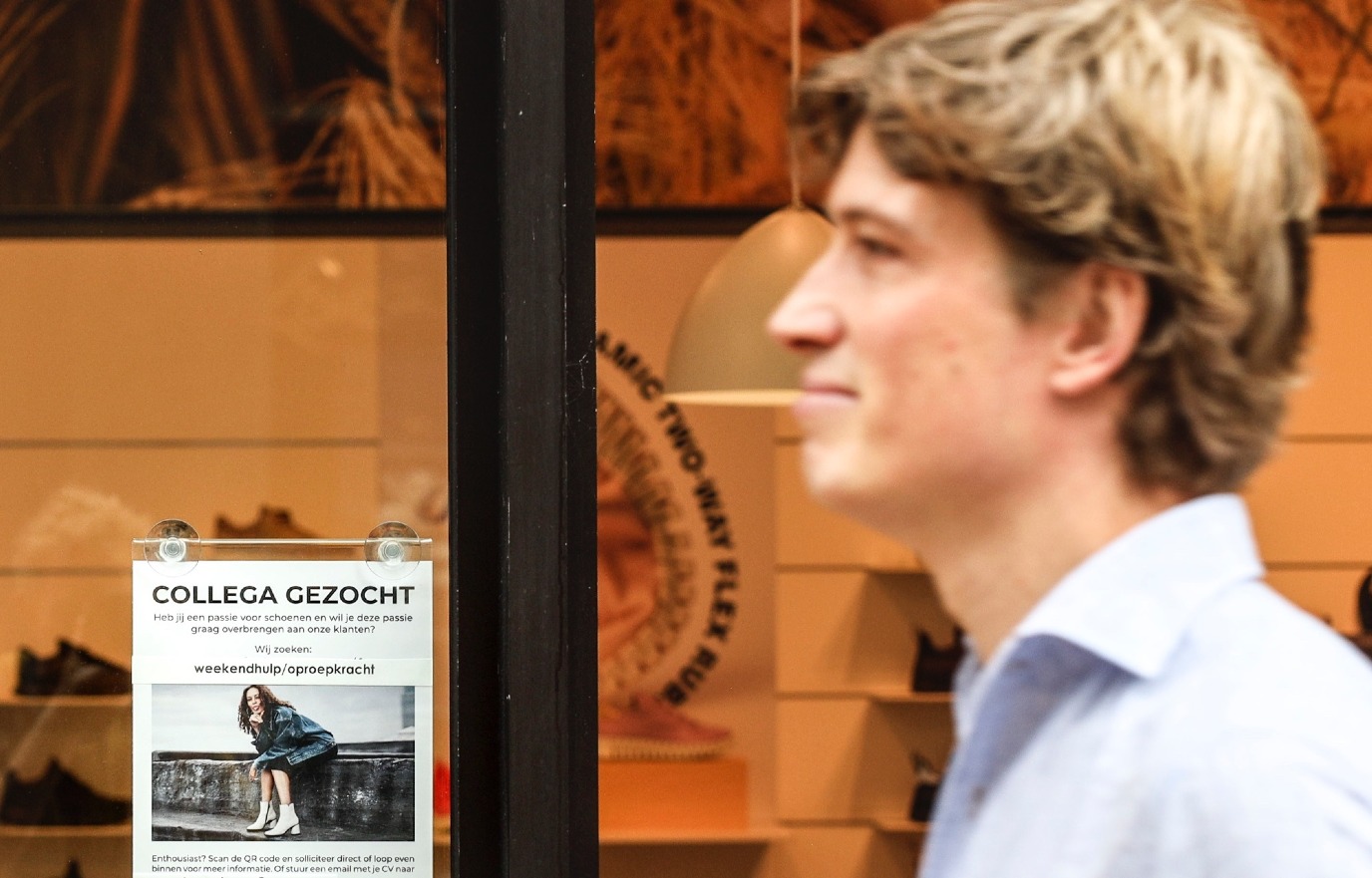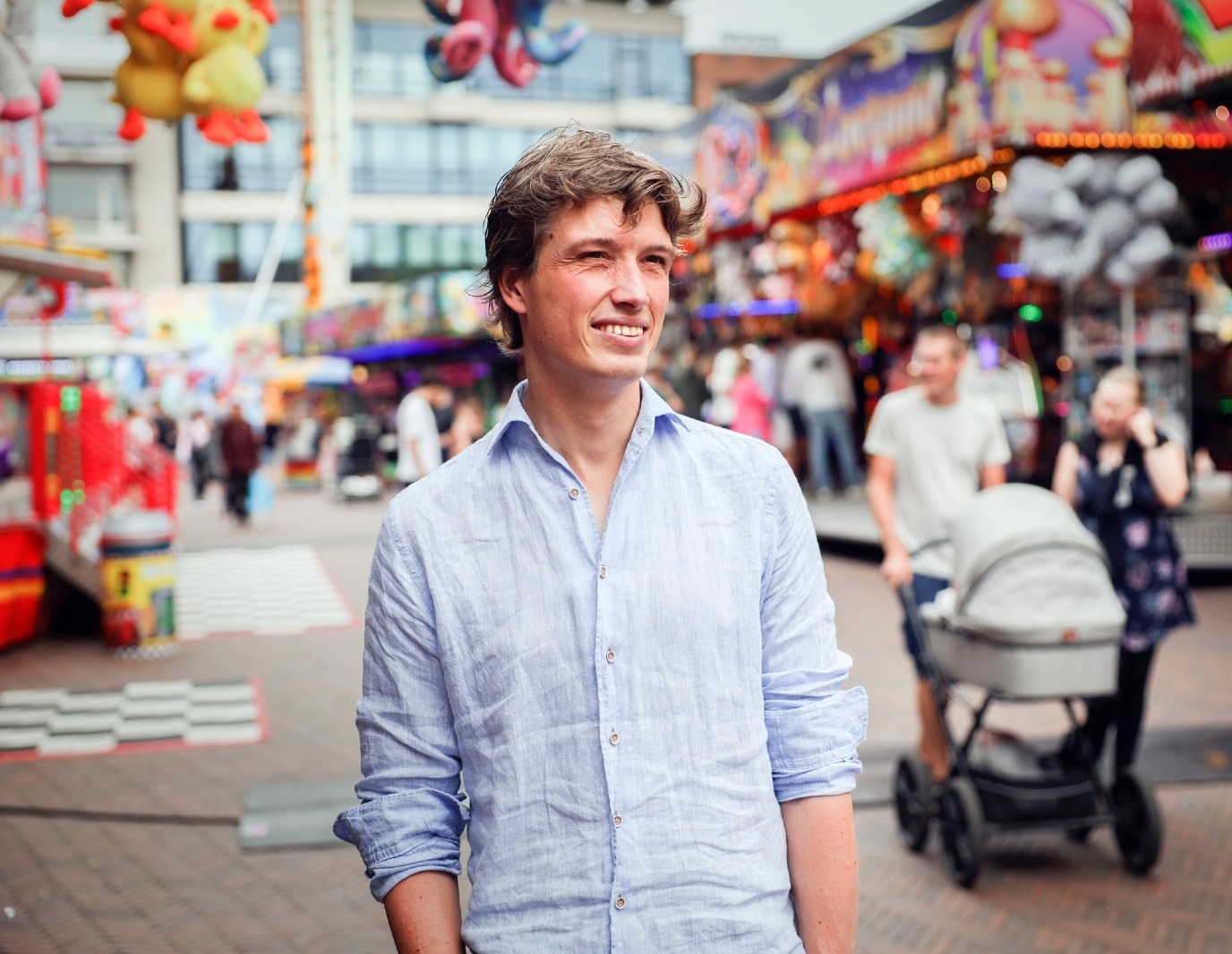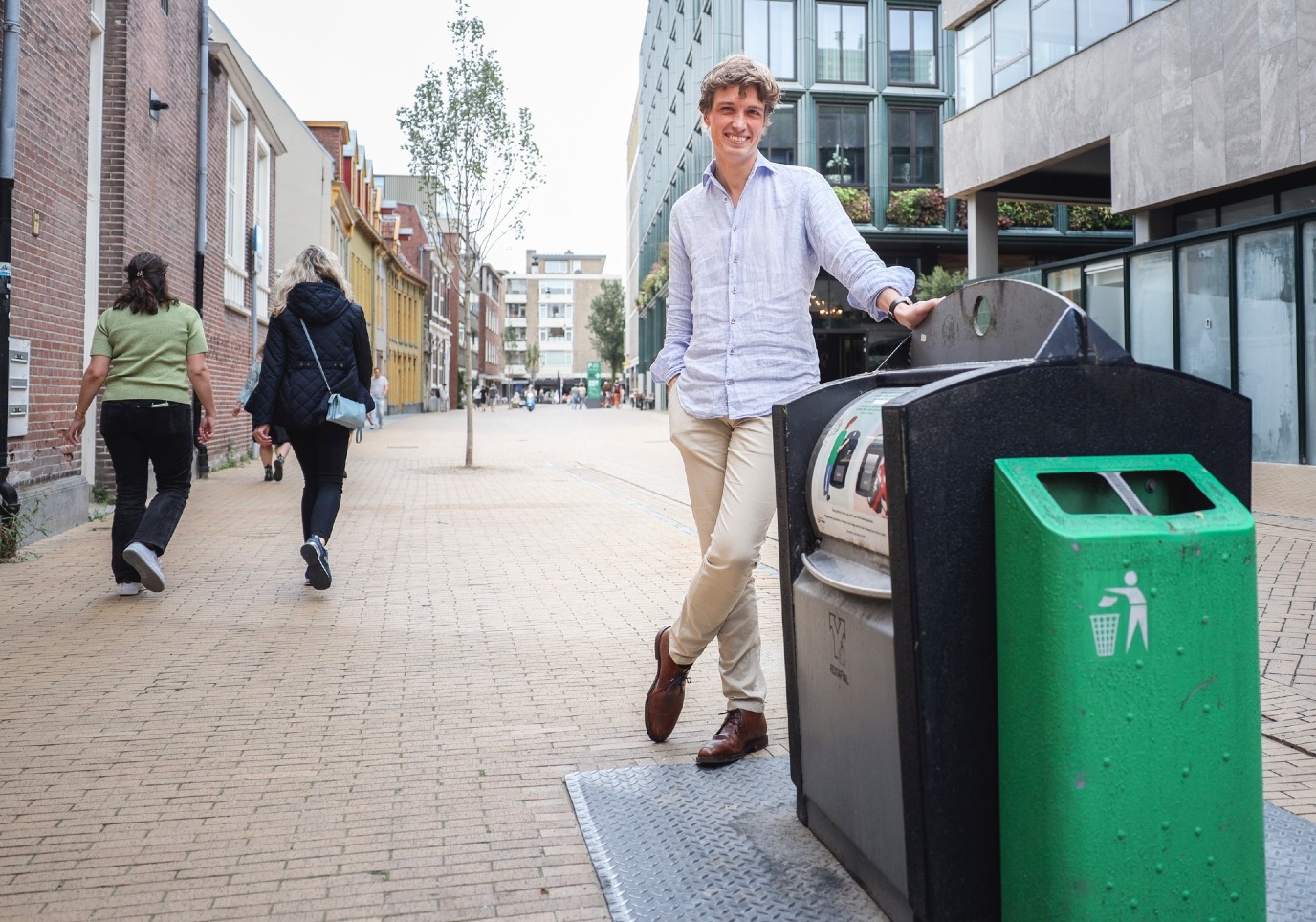How donkey poo and drinking coffee can be meaningful

Cultural anthropologist and researcher Jelle Wiering likes to delve into meaningful work. His question is not necessarily what exactly constitutes meaning or why it is important. No, he is primarily looking for an answer to the question of which factors make work meaningful to us. For him, it is not about the big ideas but rather about the everyday things that give meaning. So, which things would that be? According to him, it would primarily be extended coffee breaks and donkey droppings.
Text: Marrit Wouda, Corporate Communication UG / Photos: Henk Veenstra
The opposite of bullshit is donkey poo
Wiering is an expert in the field of meaningful work and he teaches in the Master’s degree programme in Work and Meaning (Werk en Zingeving) of the Faculty of Religion, Culture and Society, among others. For his research into meaningful work, he wanted to find the opposite of a bullshit job. Bullshit jobs are jobs in which the employee feels like they add little to nothing to society, jobs that people themselves experience as having little meaning. Wiering: ‘I was looking for a place where people do see their work as meaningful, a place where people don’t just work for the money.’ He discovered that there are a lot of people who enjoy cleaning animal cages in zoos–voluntarily. ‘I find that utterly disgusting, but apparently people want to do it.’ He did not work at the zoo, but he got involved with a donkey sanctuary, where he scooped donkey droppings for 18 months. ‘I’m an anthropologist, remember? That means I jump into everything.’

A good place to be
The donkey sanctuary was a different world. The work was completely different from what Wiering was used to. ‘In the academic world, you are always so busy, but when I went in there and wanted to start doing all kinds of things, they told me: woah, no, let’s sit down first.’ Wiering underwent something resembling rehab: beginning every day with a good half hour of drinking coffee. ‘At first I kept thinking: let’s go and do something, come on, this could be done more efficiently, but gradually I started seeing the value of all this coffee drinking.’ This value was in the space around the work. While drinking coffee, everyone was talking a lot, which meant that everyone knew each other very well. Everyone was rowing in the same direction. ‘Sometimes, people would share extremely private things, which rarely happens at university,’ says Wiering. ‘Afterwards, the person in question said: “My job is a place where I can be myself, this is a good place to be”.’ It was an ‘event of significance’, a moment in which something truly significant happened, where questions about the purpose of life became tangible.
Donkey people vs bankers
It was not the only moment that made an impact. The visit of a group of bankers to the donkey sanctuary resulted in another event of significance for Wiering and his colleagues. ‘In itself, it was a very noble idea: they didn’t send money but they came to help out for a couple of hours themselves. But it went wrong right at the beginning,’ says Wiering. The bankers were late, completely not dressed the part, and, to top it off, rain was pouring down. A clash of sorts unfolded between the donkey people and the bankers. ‘That gave an incredible rush of meaning. Us all together, these inconveniences don’t bother us, we take them in our stride, the mud, the rain, the shit.’ The event reinforced their identity as donkey poo scoopers and, consequently, gave their work meaning.

Meaning in the context
To Wiering, these examples made it clear that the meaning of work is not just in the tasks themselves. Perhaps not even for the most part. ‘To me, at the donkey sanctuary, that was really the case. The poop scooping was not that great and donkeys are fun, sure, but above all it was a good place to be. The people and the atmosphere were such that I really enjoyed coming there,’ says Wiering. According to Wiering, the context in which we experience meaning is also determined by the – mostly tangible – things around us. ‘When we’re asked what makes our work meaningful, people in the Netherlands often look up, in search of big idealist matters, but I suggest that we look down, at the tangible things.’ Things such as the mud and the droppings in the bankers example, but also a good place to sit, tasty coffee, and time to drink it together with your colleagues, the knick-knacks on your desk are all matters that are certainly not trivial, according to Wiering. He points to his desk that has pictures of his children on it, among other things. ‘I hate flexible workstations, you can’t do this then!’, he laughs.

The downside of meaning
We can apparently learn a lot from the mostly voluntary work at the donkey sanctuary. But be careful, work that has a lot of meaning also has a downside, Wiering warns. People who find their work meaningful often do that work for less money or even for free. And that is a risk, because the system is then supported by the kindness of the people who find the work meaningful and are prepared to go the extra mile. Wiering: ‘Look at academics, for example, who work their socks off for their students. They want to do their best, they want to give good feedback, because that means a lot to them, but that also means they put in a lot more hours than they actually should.’
Another example is unpaid informal care: ‘Taking care of your parents because they have nowhere else to go can be very noble and meaningful,’ says Wiering. ‘But in the long run, it’s still a problem that no one can take care of your parents.’ The academic working overtime and the sympathetic informal carer are solving a problem and experience that is meaningful but, technically, they are hiding a problem that therefore does not cease to exist. According to Wiering, that is how the fact that we find meaning in work is abused. And that is a lot less meaningful.
More information
-
Jelle Wiering
More news
-
15 September 2025
Successful visit to the UG by Rector of Institut Teknologi Bandung
